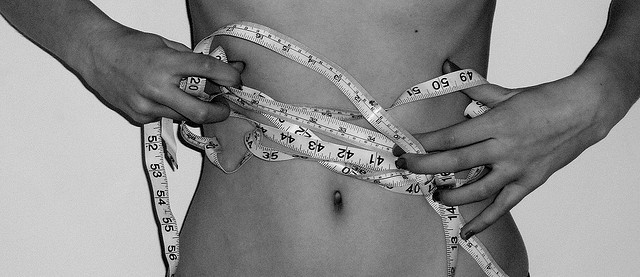Recently I was doing a radio interview and the host asked for my number-one recommendation for fat loss.
I’m pretty sure she thought I would say something like eat more protein or cut out sugary, processed foods. Maybe I would go off about a new study that showed gluten could contribute to fat gain and diabetes. Or perhaps I would discuss weight resistance or burst training to maximize fat burning.
She was slightly taken aback when I told her fast and lasting fat loss depended on optimal levels of sleep.
Let’s be clear: the right diet, exercise, and nutrients are crucial for your success. But if you’re not getting seven to nine hours of high-quality sleep every night, you could be doing everything perfectly and still derail your fat loss efforts.
Research confirms this. One study at the University of Chicago concluded that even if you eat healthily and exercise consistently, not getting enough sleep every night puts you at risk for obesity. In other words, poor sleep patterns can screw up even your best efforts to have the body you want.
Sleep Impacts Your Fat-Regulating Hormones
The best thing you can do to have a lean, fit, healthy body is a good night’s sleep. I’m talking quantity and quality here. If you sleep eight hours but wake up three times during the night to go to the bathroom, you’re not getting high-quality sleep, and the repercussions can show up around your waistline.
Related Article: 7 Steps to Fat Loss
Fair warning: I’m going to talk hormones here because sleep can knock numerous fat-regulating hormones out of balance. Countless players take the bullet with insufficient sleep. Five key ones:
Growth hormone
More fondly called your fountain-of-youth hormone for good reason. Among its duties, growth hormone (GH) regulates muscle synthesis and recovery as well as increases fat breakdown. Your body makes GH in stage 4 sleep, your deepest level of sleep. If you’re constantly waking up during the night, you could be making inefficient amounts of GH.
Leptin
This hormone tells your brain to stop eating. Too little sleep can make you leptin resistant, where you’re still producing this hormone but your brain doesn’t get the message. If you find yourself wandering to the Danish cart at 3 p.m. after you ate a substantial lunch, you might be leptin-resistant.
Ghrelin
Leptin’s evil twin, ghrelin tells your brain to eat now. Guess what? When you don’t sleep well, ghrelin increases, making you more tempted to order a low-fat blueberry muffin with your latte.
Related Article: Why Burst Training is Your Best Fat Burning Workout
Insulin
This is a biggie. You see, insulin is a storage hormone. Especially after you eat a higher-carbohydrate meal and raise your blood sugar, insulin swoops in to store that sugar and get it out of your bloodstream. So far, so good. You want insulin to do its job and chill out. Chronically elevated insulin not only stores fat; it locks fat-cell doors shut so you’re not burning fat. Long-term sleep deprivation can both elevate insulin and make your cells insulin resistant, meaning your cells don’t get insulin’s message to burn sugar.
Cortisol
Like insulin, your stress hormone cortisol can serve you in the short term and actually keep you alive. What you don’t want are chronically elevated cortisol levels. Your cortisol levels remain high for longer periods when you get less-than-optimal sleep and – no surprise – a vicious cycle ensues.
High cortisol burns up your energy-assisting B vitamins, and you can’t make the neurotransmitters you need to sleep well. This Jekyll-and-Hyde hormone also lowers levels of serotonin, the feel-good hormone your brain eventually converts to melatonin for – you guessed it – good sleep.
Practical Consequences of Insufficient Sleep
I know how many of you think: If I cut back one hour of sleep, I can get that report finished. Or maybe a couple hours’ less sleep on the weekend to have drinks with my friends won’t hurt me once in a while.
Related Article: 7 Ways to Have More Energy All Day
It’s tempting, but the reality isn’t pretty. Even one hour less sleep can trigger the hormonal chaos I discussed. You eat more, move less, make terrible eating choices, and exacerbate stress levels.
Let’s look at how this downward spiral plays out. You sleep terribly so you hit the snooze button multiple times. You’re too tired to make your morning protein shake, so you grab a “low-fat” muffin (nothing more than a sugar-laden cupcake in disguise) and a large latte for that caffeine pick-me-up.
By mid-morning, you’re drowning in stress, dealing with a sugar crash, angry at everyone in sight, and finally, say “To hell with it!” and grab a doughnut a co-worker brought in.
Poor Sleep Derails Your Exercise Efforts
Don’t think you can just crank back the calories and do some cardio to make up for that sleep-deprived hormonal flux either. It drives me crazy when clients tell me they cut back on sleep to get in a good workout before work.
If you want strong, sexy arms, you have to put in those hours at the gym but also the bedroom. Sleep helps your body repair, rebuild, and recover from the strenuous effort you put in at the gym.
Related Article: How to Sleep Better
Let’s say you got a pitiful five hours of sleep and scheduled your trainer for 6 a.m. You certainly won’t be able to train with the intensity you would with substantial rest, particularly when you’re yawning and wondering why that fourth cup of coffee never kicked in.
You also won’t recover as well from a tough workout when you don’t sleep well. You don’t give your body the chance to repair muscle mass, and you accelerate the aging process. It’s a lose-lose situation if I’ve ever seen one.
How to Establish Better Sleep Habits Tonight
I could go on but you get it: you need sleep. But it’s sometimes hard to put the brakes on life and unwind after a frenetic day. Look for a ritual that helps you relax, whether that includes soothing music, a meditation CD, or a hot bath. I like to drink chamomile tea and read a trashy (but not too stimulating!) novel to unwind. Figure out what works for you.
Just don’t make too much alcohol part of that sleep ritual. A glass of pinot noir at dinner will help you relax, but add in a nightcap or two and you will wake up dehydrated at 3 a.m. Exactly what you don’t need for a good night’s sleep.
Valerian and other herbal remedies as well as melatonin can also help you fall and stay asleep. If supplemental melatonin works, your pineal gland probably isn’t secreting sufficient amounts of this hormone that regulates circadian rhythm. Try three milligrams about 30 minutes before bed for a week and see if that does the trick.
Figure out what works for you to make sleep a priority for fat loss, building muscle, and being your best self. Trust me: it’s that important.
**********************
 Celebrity nutrition and fitness expert JJ Virgin is the author of The New York Times Bestseller The Virgin Diet.
Celebrity nutrition and fitness expert JJ Virgin is the author of The New York Times Bestseller The Virgin Diet.
Featured photo by Charlotte Astrid


